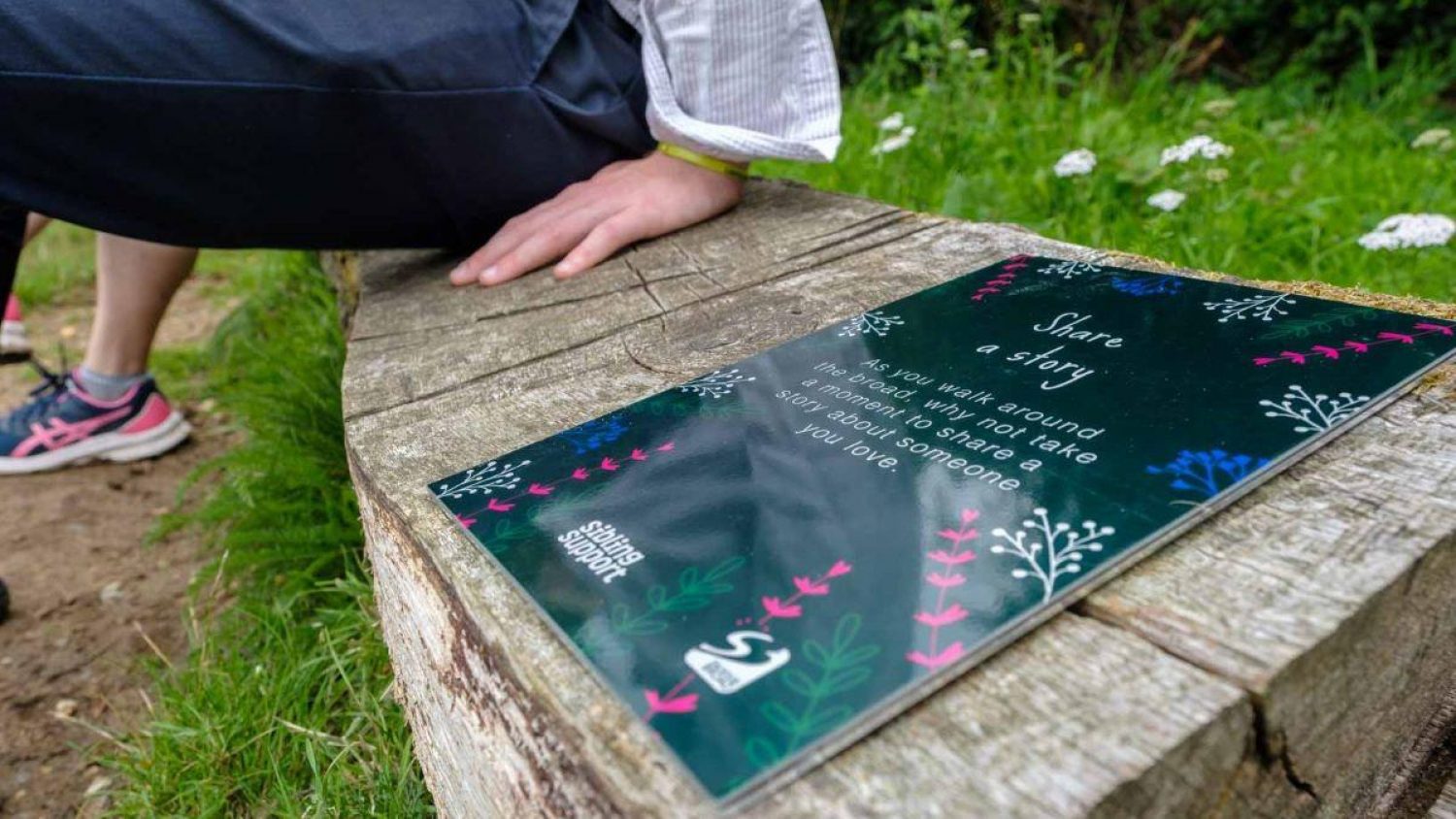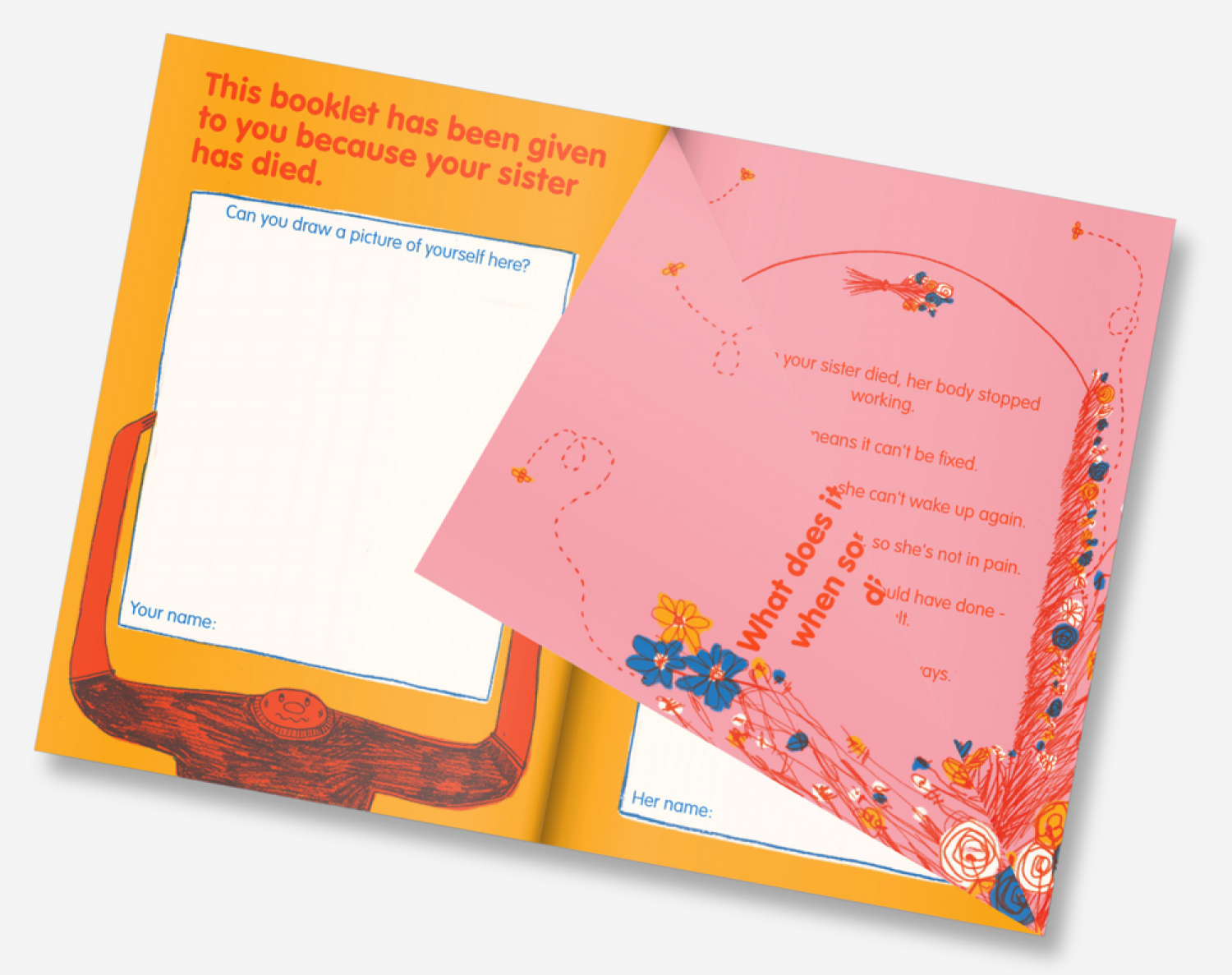Four minute read
When a brother, sister or sibling dies, it can have a lasting impact on their siblings — and on the family as a whole.
Sarah Moyes, from the charity Sibling Support, unpacks what is distinctive about sibling grief and highlights some things which can help children and young people facing the death of a sibling.
What do you think makes grieving a sibling different from other experiences of grief and loss?
We did a survey last year that showed 90% of siblings feel completely forgotten in their grief. I see this myself when I chat to young people who have lost a sibling. They say that people ask how their mum or dad are doing, but not about how they are.
Children and young people are experiencing all the usual challenges that come with school, growing up and working out their own identity. Then, suddenly, they're thrown into the midst of grief. Everything has changed — often including the whole family dynamic.
They can also feel unsupported by their peers because they don't understand what they are going through. Young people who have lost someone most often will have experienced the death of a parent or a grandparent, not a sibling.
What do you do, at Sibling Support, to help tackle that feeling of aloneness?
We share young people’s stories, and advice, through our website and on social media. It could be from someone whose sibling died maybe a year or two before, or longer ago.
For example, I interviewed someone last week whose brother died when she was a teenager. She's now approaching 40 and she’s spent the past 20 years fundraising in his memory, that's what she throws her energy into.
For a young person, telling their story helps them remember their sibling, but also find their own voice. Sometimes people feel like they're just known as their sibling's brother or sister, especially if they have been at the same school, and they lose a little bit of their own identity.
What factors affect how children and young people grieve for a sibling?
It can depend on the age of the child or young person. A teenager may be more likely than a younger child to feel responsible for supporting their parents, as well figuring out their own grief. At Sibling Support, we provide resources for children and young people of all ages, including young adults.
For some young people, the death of their sibling may come as a complete shock. With others, their sibling has been ill for years. Sometimes parents feel like they've neglected that other child, or not given them enough support, because all the attention has been on the child who is sick.
We talk about all the different emotions of grief. It’s not just sadness — you are allowed to be angry, and you are allowed to be happy. You're allowed to have a good day!
One of the things that young people struggle with is that range of emotions. If you've got a several siblings and one is really upset on a certain day and one isn't, it can be complicated as you are grieving together.
How important is to prepare children and young people for the funeral of their sibling?
In our resources for children and young people, we explain really simply what a funeral is, so that they can wrap their head around it.
We talk about how, at the funeral, people might be crying or upset. We prepare them for those emotions, as well as the practical things, like what happens during the service. A lot of young people might not have seen their parents so upset before. That, in itself, can be quite shocking.
We encourage young people to find ways to remember their siblings after the funeral too (like the mindfulness walk, pictured at the top of this blog). You don't have to necessarily visit the cemetery — you could go to a place that you both enjoyed together.
Read more about how to talk with children about death.
How can schools support children and young people experiencing sibling grief?
The first thing to do is to speak to the family and the children to find out what they want. Sometimes children want the teacher to talk about it with the class so that they're aware. Other times, they don't want the attention or a fuss to be made. It’s definitely about taking the child's lead.
Be aware of important dates that are coming up, such as the child’s birthday or their sibling's birthday — days that might previously have been celebrated but now the child might not want to acknowledge.
If the child has taken time off school, it doesn't mean that everything is okay once they go back. This grief is going to last their entire lives. They’re going to go in and out of it.
Keep an open dialogue with the family and the child about how they want to go forward with support from the school.
Read more about why schools should teach about death and bereavement.
How did Sibling Support start and who is involved now?
Sibling Support was founded by Callum Fairhurst, who struggled with grief when his brother died of cancer as a teenager. Before Sibling Support was a charity, it was simply a group of people who had lost siblings who came together.
Most of us involved in the charity now as staff or volunteers have lost a sibling, or have experienced some kind of loss, so we can fully understand.
I lost my sister in February this year to cancer. I found Sibling Support when I was looking for support myself. The stories on the website by people who had lost a sister — I could just relate to it all.
It works really well when we're chatting to young people. We know what they’re going through. And I think that helps the young people as well. They really feel like we understand and really want to help them.
Find free resources from Sibling Support for all ages and read stories from siblings on their website.
To stay in touch with all the latest news and updates from Poppy's by email, sign up here or contact us if you need help planning a funeral.

